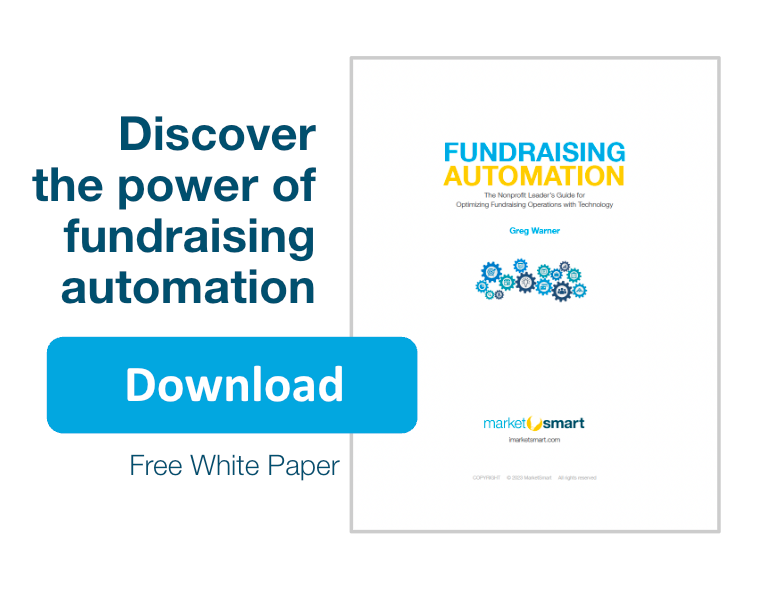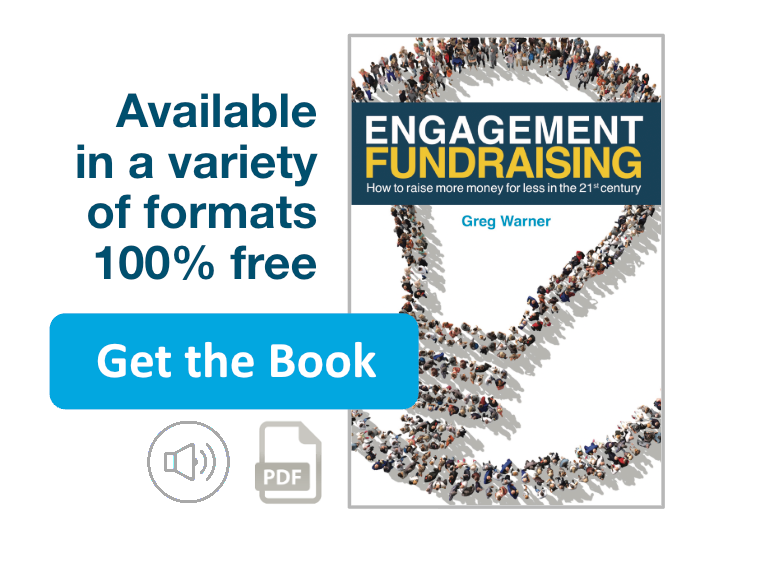Charity – Helping people in need
Philanthropy – Making an investment that stimulates other investments or provides opportunity for others
Charitable people – Help others in need. For instance, giving money to a soup kitchen before Thanksgiving so they can buy turkeys for their annual meal would make one a charitable person.
Philanthropists – Make charitable gifts that result in the creation of economic and social opportunity for individuals which, in turn, helps create a better society for everyone.
You want to find or develop philanthropists.
In other words, while the first gift a supporter makes might be a charitable donation, they could have the capacity to give your organization much more money. But they won’t hand over their home or a large chunk of cash to you because they’re feeling charitable. They’ll do it because they are feeling philanthropic.
Therefore, you need to find ways to help people feel more philanthropic. But how?
Thankfully there’s a lot of action happening in this area. Many books are being written such as Doing Good Better by William MacAskill wherein he outlines five key questions that help people make their altruistic (philanthropic) decisions:
- How many people benefit, and by how much?
- Is this the most effective thing I can do?
- Is this area neglected?
- What would have happened otherwise?
- What are the chances of success, and how good would success be?
Also, there are entire websites devoted to the issue.
They are attracting philanthropists to help guide them. For instance, this website helps people get involved in “effective altruism” so they can learn how to make an impact on the world.
People are joining. People want to be philanthropists.
I think you should help them.
In addition to helping people learn about your organization, its programs, and its impact, I think you should help them learn what philanthropy is all about. If in fact, you want to attract and support philanthropists, you need to provide them with value.
- You might share a worksheet with them so they can think through their goals
- Perhaps, give them a book about philanthropy
- Maybe send them inspirational quotes from philanthropists every now and again
Have you ever done anything like these suggestions? Did they work? Did they help build your relationship further? Please share your experience in the comments section below.
Related blogs
>> Time to Change the Way You Communicate With Donors: From Multichannel to Omnichannel Communications
>> 9 Reasons Why it’s Time to Uncover Philanthropic Mindsets





[…] Charity is aiding people who need help through money, goods, or services. Charity is often based on an authentic yet visceral response to an individual, family, or community’s problems. A charity offers immediate yet short-term solutions in response to a crisis. […]
I read another excellent article on this subject by the American Philanthropic. So I guess the point is not, “Is philanthropy better than charity?” but rather that perhaps, at the end of the day, we need both and should be intentional on which we are stewarding.
Article: “What is Charity?” https://www.philanthropydaily.com/what-is-charity/
“Christians frequently point out that there is a difference between “philanthropy” and Christian “charity.” Philanthropia, love of man, is abstract and impersonal. Philanthropy emphasizes our duty to give to our fellow man. The primary motivator for philanthropy is our responsibility to humanity: as someone with more, we ought to help lift up those with less.
“This philosophy can be carried out with great enthusiasm and compassion, but there remains something cold and transactional in it. A duty is something required, binding like a contract. Philanthropy can be spontaneous, but it is moved more by ideas about people in need than by the people in need themselves. Who, after all, is “humanity”?
“Charity, by contrast, is always tied to concrete persons. Acts of charity are carried out towards Peter, who lost his job … or the homeless guy around the corner from the office … or the single father with several children. Moreover, charity calls us to provide those whom we serve with something more than a boost in their balance sheet. For all that someone’s life might be improved through greater material comfort, at the end of the day, even the wealthiest person has nothing if they do not have meaningful, loving relationships. Charity goes beyond any discrete action to establish bonds of love.
“More pointed critics of philanthropy take the point further, arguing that while Christian charity looks to effect love in the world (however “ineffective”), philanthropy has brutalist characteristics, seeking to change communities and people, often against their will. Charity rests content with the act of love, however small. Even while the world remains imperfect, “all will be well”—and the love with which we give has a better impact than the attempted “structural change” driven by philanthropic programs.”
More at: https://www.philanthropydaily.com/what-is-charity/
Thank you for this VERY thoughtful response Fay! Much appreciated.